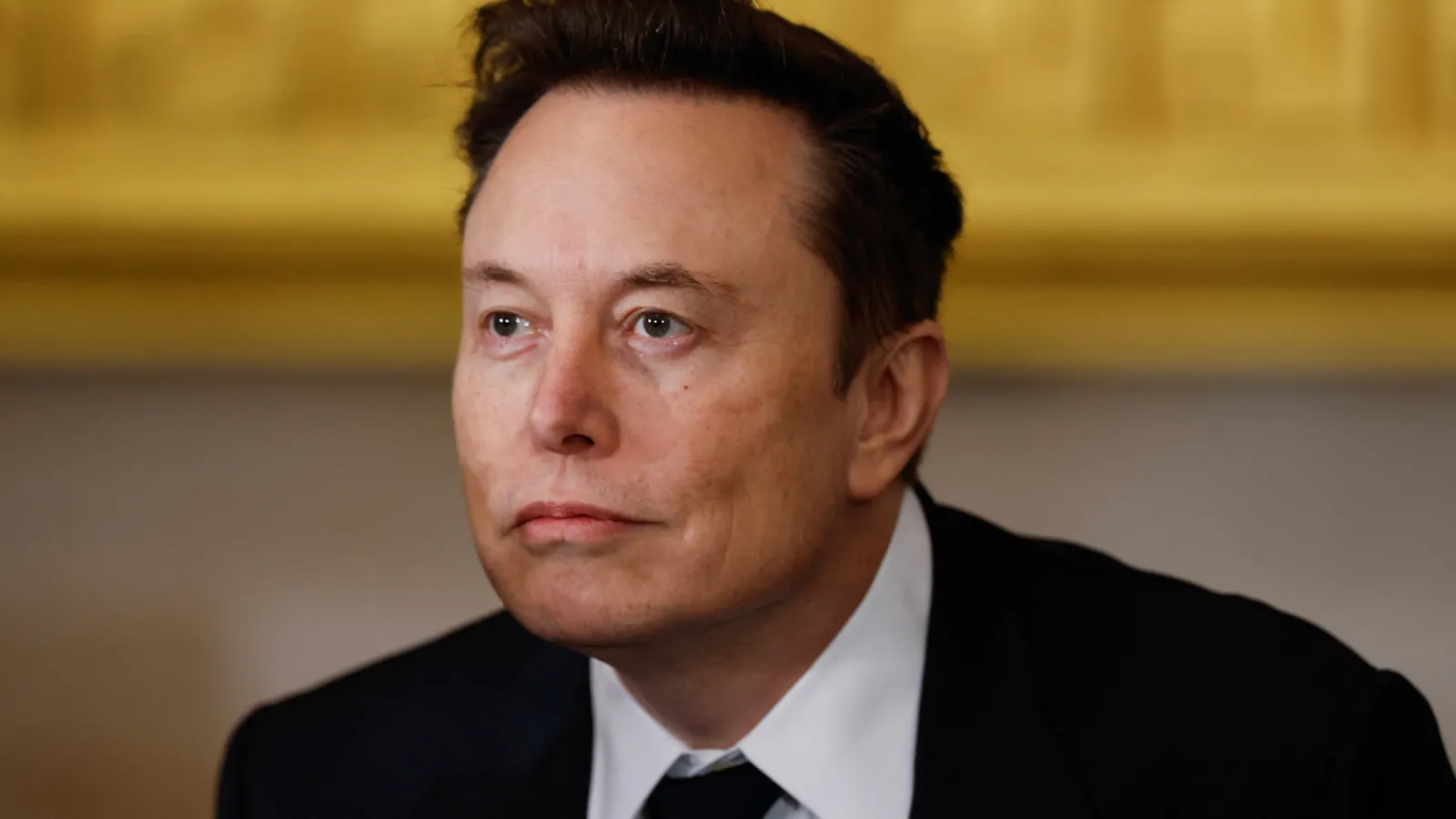Copyright Rolling Stone

“Happy birthday Wikipedia! So glad you exist.” So wrote billionaire Elon Musk on X, then Twitter, back in January 2021, on the 20th anniversary of the launch of the free online encyclopedia. Like the many others who regularly access the crowd-sourced site — more than a billion a month — he apparently regarded it as an invaluable free tool and noble undertaking that had democratized human knowledge the world over, all thanks to the tireless work of tens of thousands of volunteer editors and the nonprofit Wikimedia Foundation. On Monday, however, Musk unveiled the first version of an online encyclopedia that he said was already better than Wikipedia, and purged of that site’s so-called “propaganda.” Grokipedia, consisting of about 900,000 AI-written articles, was developed by Musk’s company xAI, using its large language model Grok, which is integrated into his social media platform, X. And while many of the pages are copied verbatim from Wikipedia, there are notable changes on topics relating to Musk, his enemies and allies, and his far-right politics. So, how did Musk go from a champion of the internet’s go-to reference resource to this clumsy attempt at killing it? While Musk continued to share Wikipedia pages on social media following his 20th birthday message to the site, his rosy view of the vast information network wouldn’t last. By the end of that same year, he was complaining that the article about him was a “dumpster fire” and improperly curated. “‘History is written by the victors’ except on Wikipedia, as your enemies are still alive & have lots of time on their hands,” he posted on that occasion, repeating the same joke every few months thereafter. Soon enough, Musk started accusing the website of ideological bias, claiming in 2022 that it was “losing its objectivity” and tagging Wikipedia co-founder Jimmy Wales as he insisted it was “overly controlled by mainstream media.” (The press became a more frequent target for the tech billionaire as he began espousing increasingly right-wing views.) By 2023, after acquiring Twitter and launching its rebrand as X, he was touting the platform’s Community Notes feature as more reliable than Wikipedia, which he accused of a “left wing editorial control problem.” Editor’s picks Ironically, a Community Note would later correct his false assertion that the Wikimedia Foundation doesn’t have significant operating expenses and therefore must be doing something else (possibly nefarious?) with user donations. While spreading that misinformation, Musk offered the nonprofit $1 billion if they changed the name “Wikipedia” to “Dickipedia” and gave it the supplementary nickname “Wokipedia,” tying it to his concept of a sinister “woke mind virus.” In 2024, as Musk threw his full influence and financial might behind the presidential campaign of Donald Trump, he was incensed at how the media and Wikipedia challenged misleading MAGA talking points and outright falsehoods, arguing shortly before the election that the latter had been seized by “left-wing activists.” He also said the encyclopedia was “broken” because of a page dedicated to the academic debate over whether Trump can be considered a fascist. Musk was similarly annoyed this January when Wikipedia accurately recorded that a gesture he made at an inauguration event had been interpreted by many people as a Nazi salute, but that he denied he had intended it as such. These mounting grievances precipitated the creation of Grokipedia as a recalibrated Wikipedia competitor, which is obvious just from looking at its virtually endless page on Elon Musk: there is no mention of the Inauguration Day salute whatsoever, let alone its resemblance to a notorious fascist gesture. Instead, Grokipedia readers are treated to flattering but questionable factoids about the man whose company built the website, including that he allegedly works “80-100 hours” per week and reportedly lost 20 pounds through intermittent fasting. Other embarrassing incidents are downplayed: whereas Wikipedia devotes a section of its Musk article to his messy “feud with Donald Trump” this spring, including the detail that Musk invoked Trump’s ties to the late sex offender Jeffrey Epstein, Grokipedia only passingly mentions a “public disagreement” with Trump — on policy issues. Related Content Right-wing commentators were meanwhile elated to see how Grokipedia whitewashed extremism, noting that it does not describe Health Secretary Robert F. Kennedy Jr. as a conspiracy theorist or anti-vaccine activist, as Wikipedia does in its opening paragraph on him. Following that thread a bit further, you’ll find that while Wikipedia’s page about “Anti-vaccine activism” includes an up-front acknowledgement of the misinformation and disinformation that drive the movement, Grokipedia’s page on “Vaccine opposition activism” is notably softer, merely observing that proponents have sometimes been criticized for distorting data. Conspiracy theories themselves are given somewhat more credence on Grokipedia as well. Consider the article on Pizzagate, a widely debunked fake story about a supposed child sex trafficking ring run by liberal elites out of the basement of a Washington D.C. Even the far-right influencers known to have spread this misinformation almost a decade ago, including Mike Cernovich and Jack Posobiec, have abandoned the absurd premise, yet Grokipedia calls Pizzagate a series of “allegations,” a “hypothesis,” and a “narrative.” The phrase “conspiracy theory” doesn’t appear until the 35th paragraph, following long sections about the interpretations of leaked emails from prominent Democrats as coded messages and the emergence of “symbolic evidence.” Perhaps not surprisingly, separate pages for Posobiec and Cernovich do not identify them as conspiracy theorists, only reporting that they have been characterized this way by mainstream media and “left-leaning outlets.” Musk’s fingerprints abound across the sections of Grokipedia that address subjects of his own resentments. He has long railed against billionaire George Soros as a puppet-master of left-wing activism, and where Wikipedia explains such views as antisemitic conspiracy theories, Grokipedia has a page titled “Theories of George Soros’s influence.” Musk has tacitly endorsed the racist “Great Replacement” conspiracy theory, which baselessly holds that liberal elites are trying to erode white majority demographics in western nations through immigration; Grokipedia, of course, treats it as a valid and empirically supported idea, dismissing its glaring connections to white nationalist ideology as nothing but rhetorical attacks by the press. Naturally, Musk’s reactionary stances on gender and sexuality are out on display. The word “cisgender” — a neutral complement to the word “transgender” — “pathologizes normality,” according to critics, Grokipedia says. Its source for this is a website called New Discourses, founded by author and far-right activist James Lindsay, who has smeared LGBTQ people as “groomers” trying to indoctrinate children into the queer community. Elsewhere, the page for “transgender” speculates at length as to whether people are transitioning primarily due to “social contagion,” i.e., exposure to other trans people in real life and online. Actual scientific evidence indicates no effect of this kind. Trending Stories But having the goods to back up your inflammatory beliefs is hardly the point of Grokipedia, a platform simply meant to appear authoritative in its own right. With its AI-based model, it also seeks to exacerbate the common and mistaken assumption that chatbots infallibly supply objective truth on command. Make no mistake: unlike Wikipedia’s articles, the hundreds of thousands of pages on Grokipedia don’t represent any human effort to arrive at some consensus version of reality. They’re words scraped from around the web, rearranged, revised, and laced with the most toxic parts of Musk’s worldview.



